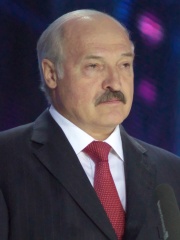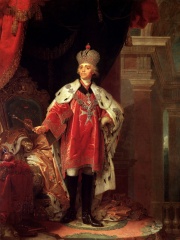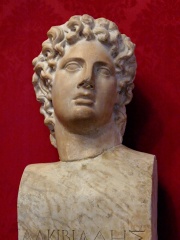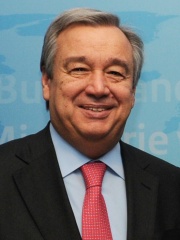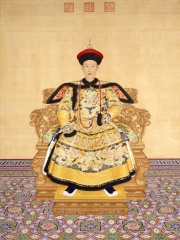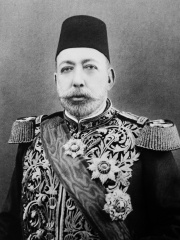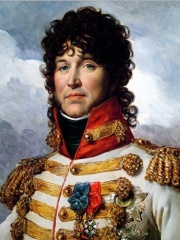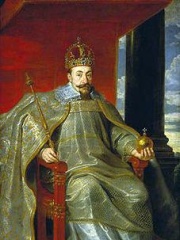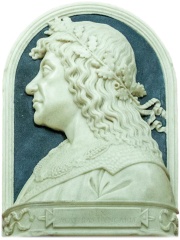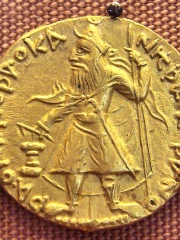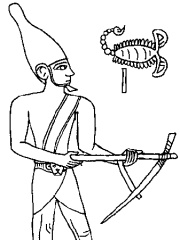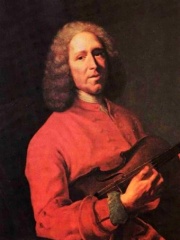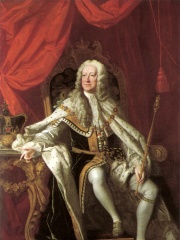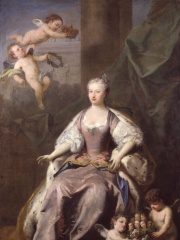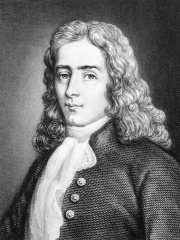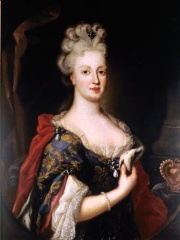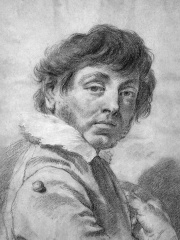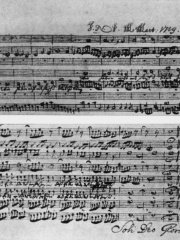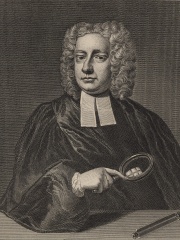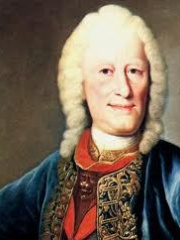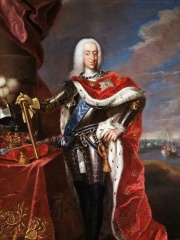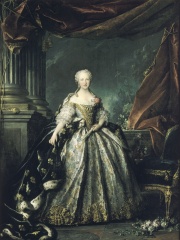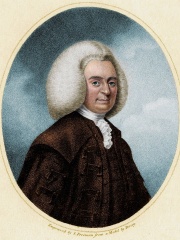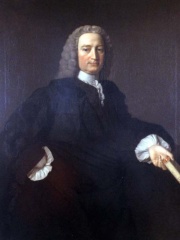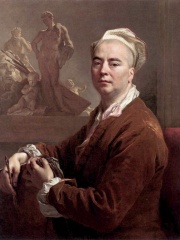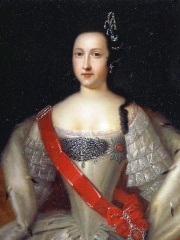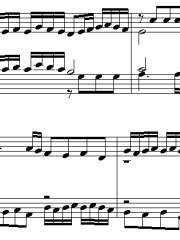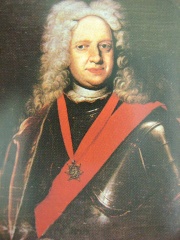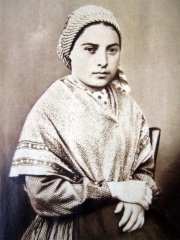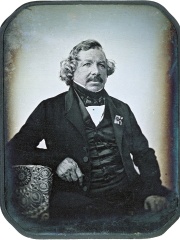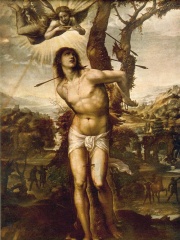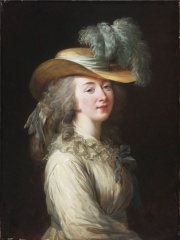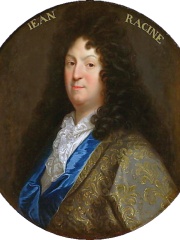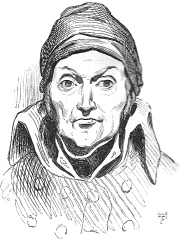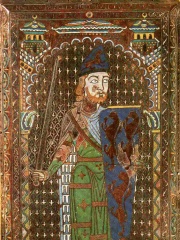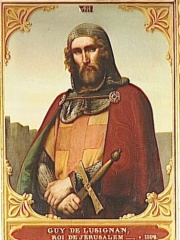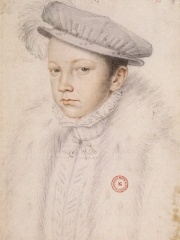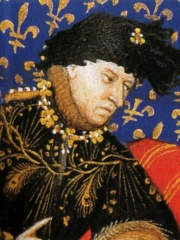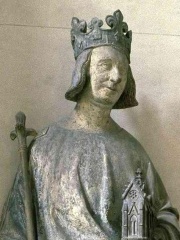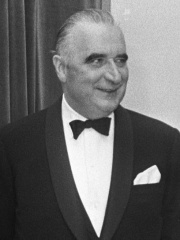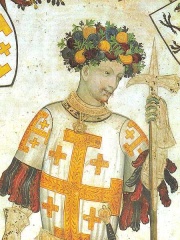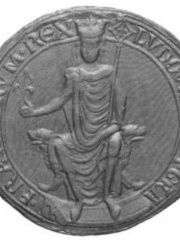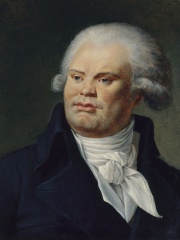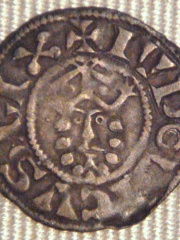POLITICIAN
Philip V of Spain
1683 - 1746

 Philip V of Spain
Philip V of Spain
Philip V (Spanish: Felipe V; 19 December 1683 – 9 July 1746) was king of Spain from 1 November 1700 to 14 January 1724 and again from 6 September 1724 to his death in 1746. His total reign (45 years, 9 months and 8 days) is the longest in the history of the Spanish monarchy, surpassing Philip IV. Although his ascent to the throne precipitated the War of the Spanish Succession, Philip V instigated many important reforms in Spain, most especially the centralization of power of the monarchy and the suppression of regional privileges, via the Nueva Planta decrees, and restructuring of the administration of the Spanish Empire on the Iberian Peninsula and its overseas regions. Philip was born into the French House of Bourbon during the reign of his grandfather King Louis XIV. He was the second son of Louis, Grand Dauphin, and was third in line to the French throne after his father and his elder brother, Louis, Duke of Burgundy. Read more on Wikipedia
His biography is available in 75 different languages on Wikipedia (up from 74 in 2024). Philip V of Spain is the 479th most popular politician (down from 263rd in 2024), the 179th most popular biography from France (down from 105th in 2019) and the 44th most popular French Politician.
Philip V of Spain was most famous for his involvement in the War of Spanish Succession.
Memorability Metrics
Page views of Philip V of Spain by language
Among POLITICIANS
Among politicians, Philip V of Spain ranks 479 out of 19,576. Before him are Alexander Lukashenko, Paul I of Russia, Alcibiades, António Guterres, Isaias Afwerki, and Qianlong Emperor. After him are Mehmed V, Joachim Murat, Sigismund III Vasa, Matthias Corvinus, Kanishka, and Scorpion II.
Most Popular Politicians in Wikipedia
Go to all RankingsAlexander Lukashenko
1954 - Present
HPI: 79.35
Rank: 473
Paul I of Russia
1754 - 1801
HPI: 79.34
Rank: 474
Alcibiades
450 BC - 404 BC
HPI: 79.33
Rank: 475
António Guterres
1949 - Present
HPI: 79.33
Rank: 476
Isaias Afwerki
1946 - Present
HPI: 79.27
Rank: 477
Qianlong Emperor
1711 - 1799
HPI: 79.27
Rank: 478
Philip V of Spain
1683 - 1746
HPI: 79.26
Rank: 479
Mehmed V
1844 - 1918
HPI: 79.26
Rank: 480
Joachim Murat
1767 - 1815
HPI: 79.24
Rank: 481
Sigismund III Vasa
1566 - 1632
HPI: 79.24
Rank: 482
Matthias Corvinus
1443 - 1490
HPI: 79.23
Rank: 483
Kanishka
78 - 144
HPI: 79.23
Rank: 484
Scorpion II
3500 BC - Present
HPI: 79.23
Rank: 485
Contemporaries
Among people born in 1683, Philip V of Spain ranks 1. After him are Jean-Philippe Rameau, George II of Great Britain, Caroline of Ansbach, René Antoine Ferchault de Réaumur, Maria Anna of Austria, 6th Dalai Lama, Giovanni Battista Piazzetta, Gottfried Silbermann, Christoph Graupner, John Theophilus Desaguliers, and Johann David Heinichen. Among people deceased in 1746, Philip V of Spain ranks 1. After him are Christian VI of Denmark, Maria Teresa Rafaela of Spain, Colin Maclaurin, Georg Wilhelm Steller, Francis Hutcheson, Nicolas de Largillière, Anna Leopoldovna, Domenico Alberti, Moshe Chaim Luzzatto, Johann Caspar Ferdinand Fischer, and Friedrich Wilhelm, Duke of Saxe-Meiningen.
Others Born in 1683
Go to all RankingsPhilip V of Spain
POLITICIAN
1683 - 1746
HPI: 79.26
Rank: 1
Jean-Philippe Rameau
COMPOSER
1683 - 1764
HPI: 79.05
Rank: 2
George II of Great Britain
POLITICIAN
1683 - 1760
HPI: 77.79
Rank: 3
Caroline of Ansbach
COMPANION
1683 - 1737
HPI: 77.65
Rank: 4
René Antoine Ferchault de Réaumur
BIOLOGIST
1683 - 1757
HPI: 72.84
Rank: 5
Maria Anna of Austria
COMPANION
1683 - 1754
HPI: 69.05
Rank: 6
6th Dalai Lama
RELIGIOUS FIGURE
1683 - 1706
HPI: 68.66
Rank: 7
Giovanni Battista Piazzetta
PAINTER
1683 - 1754
HPI: 65.05
Rank: 8
Gottfried Silbermann
POLITICIAN
1683 - 1753
HPI: 65.04
Rank: 9
Christoph Graupner
COMPOSER
1683 - 1760
HPI: 64.46
Rank: 10
John Theophilus Desaguliers
PHYSICIST
1683 - 1744
HPI: 64.30
Rank: 11
Johann David Heinichen
COMPOSER
1683 - 1729
HPI: 63.22
Rank: 12
Others Deceased in 1746
Go to all RankingsPhilip V of Spain
POLITICIAN
1683 - 1746
HPI: 79.26
Rank: 1
Christian VI of Denmark
POLITICIAN
1699 - 1746
HPI: 77.47
Rank: 2
Maria Teresa Rafaela of Spain
POLITICIAN
1726 - 1746
HPI: 72.23
Rank: 3
Colin Maclaurin
MATHEMATICIAN
1698 - 1746
HPI: 68.90
Rank: 4
Georg Wilhelm Steller
BIOLOGIST
1709 - 1746
HPI: 68.25
Rank: 5
Francis Hutcheson
PHILOSOPHER
1694 - 1746
HPI: 67.91
Rank: 6
Nicolas de Largillière
PAINTER
1656 - 1746
HPI: 65.86
Rank: 7
Anna Leopoldovna
POLITICIAN
1718 - 1746
HPI: 65.72
Rank: 8
Domenico Alberti
MUSICIAN
1710 - 1746
HPI: 65.15
Rank: 9
Moshe Chaim Luzzatto
PHILOSOPHER
1707 - 1746
HPI: 61.47
Rank: 10
Johann Caspar Ferdinand Fischer
COMPOSER
1656 - 1746
HPI: 61.28
Rank: 11
Friedrich Wilhelm, Duke of Saxe-Meiningen
NOBLEMAN
1679 - 1746
HPI: 61.22
Rank: 12
In France
Among people born in France, Philip V of Spain ranks 179 out of 6,770. Before him are Bernadette Soubirous (1844), Louis Daguerre (1787), Saint Sebastian (300), Catherine Deneuve (1943), Madame du Barry (1743), and Jean-Michel Jarre (1948). After him are Jean Racine (1639), Pope Innocent V (1225), Joachim Murat (1767), Nicolas Appert (1749), Geoffrey Plantagenet, Count of Anjou (1113), and Guy of Lusignan (1150).
Others born in France
Go to all RankingsBernadette Soubirous
RELIGIOUS FIGURE
1844 - 1879
HPI: 79.51
Rank: 173
Louis Daguerre
INVENTOR
1787 - 1851
HPI: 79.44
Rank: 174
Saint Sebastian
RELIGIOUS FIGURE
300 - 287
HPI: 79.42
Rank: 175
Catherine Deneuve
ACTOR
1943 - Present
HPI: 79.35
Rank: 176
Madame du Barry
COMPANION
1743 - 1793
HPI: 79.29
Rank: 177
Jean-Michel Jarre
MUSICIAN
1948 - Present
HPI: 79.27
Rank: 178
Philip V of Spain
POLITICIAN
1683 - 1746
HPI: 79.26
Rank: 179
Jean Racine
WRITER
1639 - 1699
HPI: 79.26
Rank: 180
Pope Innocent V
RELIGIOUS FIGURE
1225 - 1276
HPI: 79.25
Rank: 181
Joachim Murat
POLITICIAN
1767 - 1815
HPI: 79.24
Rank: 182
Nicolas Appert
INVENTOR
1749 - 1841
HPI: 79.23
Rank: 183
Geoffrey Plantagenet, Count of Anjou
POLITICIAN
1113 - 1151
HPI: 79.23
Rank: 184
Guy of Lusignan
POLITICIAN
1150 - 1194
HPI: 79.22
Rank: 185
Among POLITICIANS In France
Among politicians born in France, Philip V of Spain ranks 44. Before him are Francis II of France (1544), Charles VI of France (1368), Charles V of France (1338), Georges Pompidou (1911), Godfrey of Bouillon (1060), and Nicolas Sarkozy (1955). After him are Joachim Murat (1767), Geoffrey Plantagenet, Count of Anjou (1113), Guy of Lusignan (1150), Louis VIII of France (1187), Georges Danton (1759), and Louis VII of France (1120).
Francis II of France
1544 - 1560
HPI: 79.96
Rank: 38
Charles VI of France
1368 - 1422
HPI: 79.92
Rank: 39
Charles V of France
1338 - 1380
HPI: 79.90
Rank: 40
Georges Pompidou
1911 - 1974
HPI: 79.83
Rank: 41
Godfrey of Bouillon
1060 - 1100
HPI: 79.79
Rank: 42
Nicolas Sarkozy
1955 - Present
HPI: 79.57
Rank: 43
Philip V of Spain
1683 - 1746
HPI: 79.26
Rank: 44
Joachim Murat
1767 - 1815
HPI: 79.24
Rank: 45
Geoffrey Plantagenet, Count of Anjou
1113 - 1151
HPI: 79.23
Rank: 46
Guy of Lusignan
1150 - 1194
HPI: 79.22
Rank: 47
Louis VIII of France
1187 - 1226
HPI: 79.13
Rank: 48
Georges Danton
1759 - 1794
HPI: 79.12
Rank: 49
Louis VII of France
1120 - 1180
HPI: 79.10
Rank: 50
